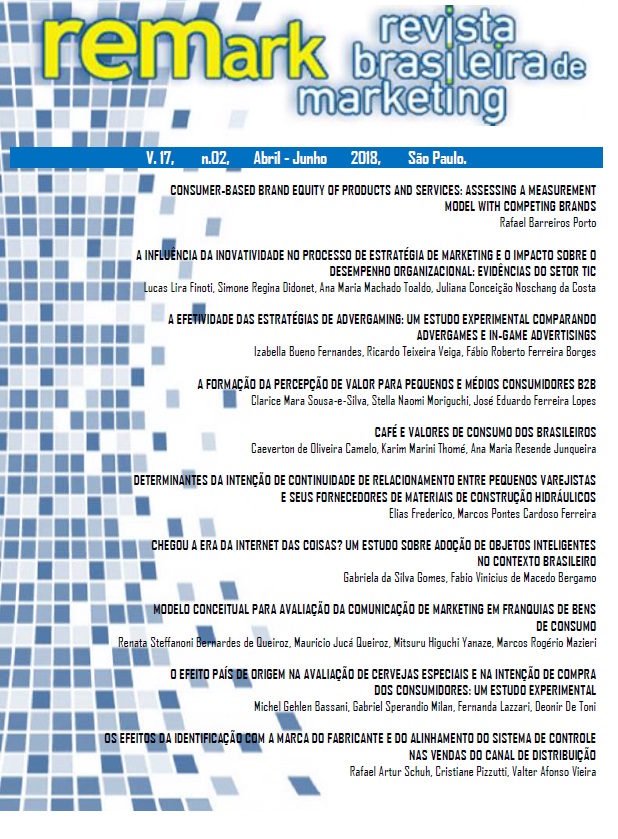Consumer-Based Brand Equity of Products and Services: Assessing a Measurement Model with Competing Brands
DOI:
https://doi.org/10.5585/remark.v17i2.3547Palavras-chave:
Brand equity, Brand Management, Psychometric, Scale, Branding.Resumo
Objective: Identifying which brand in a category conveys more or less value to the consumer raises questions about the composition of brand equity measures and the brands that make up the category. Measures to identify Consumer-Based Brand Equity (CBBE) may include functional assessments of consumer’s brand choice and firms’ brand performance, as long as they embrace competing brands. In view of this, this study comes up with a validation of a measurement model of Consumer-Based Brand Equity for competing brands of products and services, testing for possible moderation (product / service and experienced / non-experienced consumers).
Method: Appraising 39 brands, the model was composed of 6 metrics: awareness, perceived quality, loyalty, association, exclusiveness and willingness to pay a price premium. Confirmatory factorial analysis revealed the CBBE structure and multigroup moderation tests showed the comparisons between products and services and between experienced and non-experienced consumers.
Main Result: The metrics have convergent validity with very good model fit. The metrics are similar for products / services, but different for consumers with / without experience (evidence of moderation).
Contributions: Based on this measure, researchers and marketers can identify whether their brand's performance has been perceived better or worse than that of their competitors.
Relevance/Originality: This article is the first to offer a more complete scale to assess the consumer-based brand equity of products and services, allowing the researcher to compare the competitiveness between brands.
Downloads
Downloads
Publicado
Como Citar
Edição
Seção
- Resumo 1535
- PDF/INGLÊS 926








